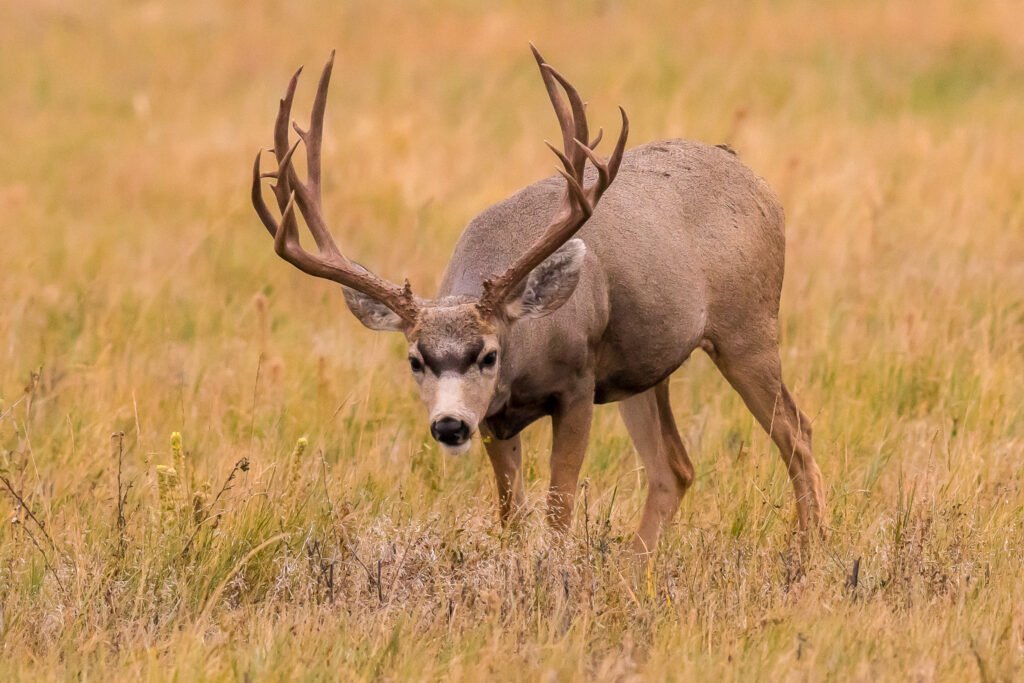This Friday Arizona’s Sport and Fish Fee might direct the company to think about options to its controversial system of auctioning coveted searching alternatives that increase thousands and thousands of {dollars} for trophy big-game animals and their habitat.
It’s a surprisingly fraught resolution for a state company that has been among the many most energetic brokers of public sale tags, or promoting to the best bidder unique alternatives to hunt big-game animals that many resident hunters wait their whole lives to pursue.
In Friday’s assembly, Arizona’s wildlife supervisor will update the commission on the division’s analysis of raffle and non-raffle tag distribution of the state’s Particular Massive Sport License Tags. These tags increase thousands and thousands of {dollars} which might be earmarked for administration of particular big-game species, each in Arizona and likewise in most different Western states,
Arizona regulation permits the division to dealer as much as three tags for every of its 10 big-game species, and whereas many tags are raffled, probably the most aspirational trophy alternatives are offered at public sale to the best bidder. Final 12 months Arizona’s statewide mule deer tag sold for a record $725,000 on the Western Looking and Conservation Expo. This 12 months Arizona’s statewide desert bighorn sheep license was auctioned for a report $430,000 on the Wild Sheep Foundation’s annual convention held in January in Reno, Nevada.
That wasn’t even the priciest searching license offered at what’s known as the Sheep Show. In a single night time in January, a report $6.5 million was raised on public sale tags, with statewide bighorn sheep licenses in each Colorado and New Mexico fetching $600,000 apiece.
“It’s wonderful the variety of data that hold getting surpassed every year,” president and CEO of the Wild Sheep Basis Grey Thornton stated on the time. “The truth that a handful of people stepped up at these ranges to place and hold extra wild sheep on the mountain for everybody, and someday put extra sheep permits into the general public attracts, is the definition of paying it ahead. That’s the spine of conservation.”
However the actual fact {that a} handful of people are shopping for licenses for alternatives to hunt public wildlife is troubling to others, who say the association stresses one of many tenets of America’s wildlife-conservation traditions: that entry to wildlife must be equitably distributed.
Because it occurs, there’s an alternative choice to promoting tags to the best bidder at public sale. It’s a raffle, by which a associate conservation group sells probabilities on tags much like a lottery. Auctions are typically simpler to manage, and are interesting to a small group of well-connected hunters keen to pay high greenback for licenses which might be so restricted in quantity that legal guidelines of provide and demand inflate their worth. Raffles, alternatively, take extra time and administration, however could be thought-about extra democratic, since anybody who buys an opportunity has the identical alternative to attract as some other raffle-ticket purchaser. However for high-value species like bighorn sheep, raffles may not increase as a lot cash as auctions, cash that in the end advantages each big-game animals and the general public hunters who pursue them.
These are the options that Arizona’s Fish and Wildlife Fee will contemplate on Friday, and since they’re so divergent, it’s price professionals and cons of every association.
The Case for Massive-Sport Tag Auctions
If a state company is solely trying to maximize the sum of money for wildlife conservation, the public sale mannequin will get the nod. Taking North American wild sheep as one instance, alternatives for searching are so restricted that in jurisdictions like Sonora, Mexico, or some Indian reservations, the place permits are distributed by the market, tags routinely promote for mid-six-digit sums. Shopping for these alternatives are the one reputable methods to ensure an opportunity to hunt a trophy ram; public permits are so restricted and the demand for them so excessive that the chances of pulling one in an annual company draw are far lower than 1 %.
Sheep tags not offered at conservation auctions are sometimes offered as an alternative by outfitters, with little or no habitat or administration profit accrued to the species.
Public sale tags get headlines for his or her eye-popping costs, and as a window into the loopy economic system of devoted wild-sheep hunters, a lot of whom are on a quest to realize a grand slam, or killing every of the 4 subspecies of North American rams. However few folks perceive the downstream public good thing about the income that auctions generate. Cash earmarked for species conservation will increase the quantity and distribution of herds, which leads to extra tags being made obtainable for public distribution by means of company attracts.
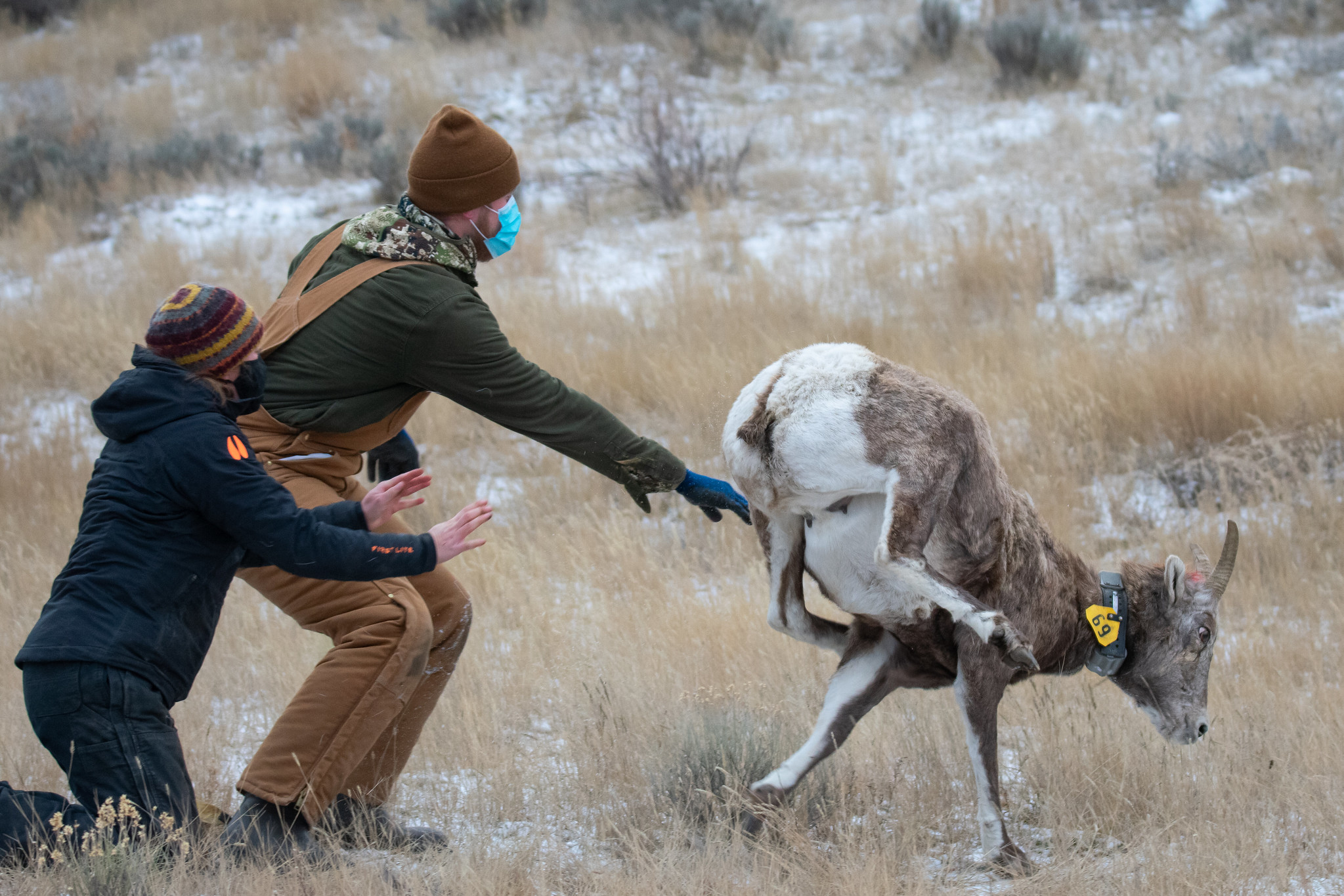
It’s not simply the designated species that advantages from this trickle-down conservation. Ecosystem tasks that enhance bighorn sheep habitat additionally profit high-country mule deer, and elk, and fragile subalpine vegetation on the headwaters of the West’s main rivers.
In Utah, the place statewide mule deer public sale tags have raised over $10 million over the previous decade, designated public sale income has funded the acquisition of 1000’s of GPS-linked wildlife collars. Biologists who’ve deployed these collars in analysis tasks have recognized necessary traits, together with big-game migration corridors and the significance of maternal well being in mule deer herds. Collar-generated knowledge has highlighted the significance of productive summer season vary, which creates fatter does which in flip produce heavier fawns which have a greater likelihood of surviving each predators and onerous winters and recruiting into the subsequent technology of mule deer. Primarily based on these findings, Utah has launched an initiative to enhance public-land habitats the place mule deer increase their fawns.
The Case for Massive-Sport Tag Raffles
Raffles can present a lot of those self same advantages, with the benefit of complying with the general public’s expectation that state companies distribute searching alternatives equitably. The distinction is that income is raised at $20 a ticket, or perhaps $100 a ticket. The income trickles in slowly, and requires a great deal of advertising and marketing, communications, and outreach so as to enhance ticket gross sales. However there’s rising proof that raffle-tag distribution can increase as a lot or greater than public sale gross sales, at the least for some species.
Utah’s Conservation Permit Program is an effective instance. The state’s Division of Wildlife Assets sells 200 permits for alternatives to hunt every thing from desert bighorn sheep to wild turkeys, for $5 a pop, and permits are drawn from the overall quantity offered. The catch is that let entries have to be validated in particular person on the Western Expo, which boosts attendance on the annual present in Salt Lake Metropolis.
Final 12 months Montana’s chapter of Backcountry Hunters & Anglers gained approval from Montana’s Fish and Wildlife Fee to dealer the 2024 statewide mule deer permit, and on Might 15 will announce the raffle winner. The state chapter is promoting limitless tickets, at $20 apiece, in an try and beat the earlier report for the statewide allow: $40,000.
“The very last thing we would like is to see much less cash raised for conservation,” says Kevin Farron, regional coverage director for BHA, “however we’re attempting to show that at the moment, by leveraging our contacts and by taking our marketing campaign to the web and social media, that we will increase simply as a lot coin for conservation, if no more, than public sale tags, and be sure that funding will nonetheless be earmarked for the species.”
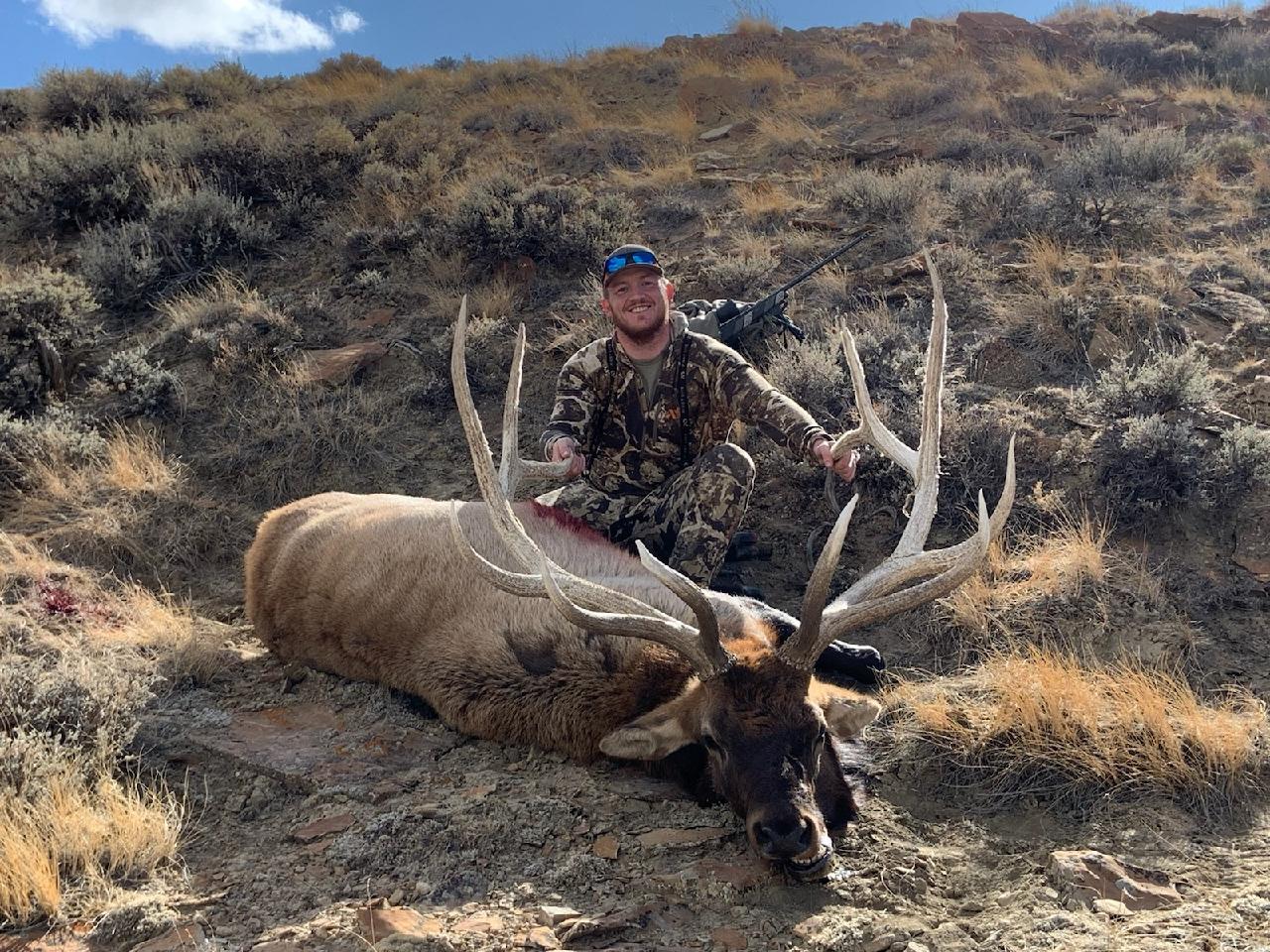
Raffles have the additional benefit of conforming to democratic distribution of searching alternative. One of many pillars of what’s come to be known as the North American Mannequin of wildlife conservation is the equitable entry to wildlife assets. Public sale tags, by which individuals are leaping to the top of the road based mostly on the dimensions of their checking accounts, isn’t significantly democratic.
“I feel all of us maintain our noses a little bit bit once we watch these public sale tags go to the best bidder at these banquets,” says Farron. “The answer isn’t to abolish public sale tags, however reasonably to think about options to the public sale mannequin, and if there’s an alternative choice to increase simply as a lot cash or extra, I feel you’d be hard-pressed to seek out anyone against that.”
The Montana BHA chapter factors to the success of BHA’s Wyoming chapter, which two years in the past was given the chance to raffle a Wyoming commissioner’s tag for statewide mule deer, and ended up elevating about $45,000, or triple the earlier auction-tag income.
Farron notes that Montana’s statewide mule deer tag has offered at public sale for a 10-year common of about $27,000, and he expects BHA’s raffle to lift considerably greater than that.
As we’ve famous, one of many greatest criticisms of public sale tags is that they merely don’t conform to our long-standing traditions of equal entry to the general public’s wildlife. Some issues shouldn’t be on the market to the best bidder, say critics of auctions, and that features public wildlife.
Whereas celebrating the record-breaking contributions of public sale winners in January, the Wild Sheep Basis’s Thornton acknowledged the problematic nature of the auction-tag mannequin.
“Whereas some might discover this sort of conservation funding opposite to the North American Conservation Mannequin, the Mannequin’s renowned spokesman, Shane Mahoney, disagrees, noting that the Mannequin encourages states, provinces, and tribal/First Nations to fund wildlife companies in the best method. Permitting a couple of people passionate a few wildlife species to fund the vast majority of an company’s funds for that species with very restricted public sale and raffle permits is the best, maintaining tempo with the rising administration prices for that species.”
If that looks as if a handy studying of conservation coverage, contemplate that some state companies, drawn to the towering income produced by public sale tags, have urged rising the variety of tags distributed by public sale. In spite of everything, if a little bit income is nice for the useful resource, absolutely plenty of income can be higher. However normally, constituents of the company have known as for restraint, so as to be sure that as many “public” tags as potential are made obtainable to candidates who typically wait their whole lives to attract considered one of these coveted alternatives.
In addition to the purity of public sale tags, there’s additionally income leakage. In some circumstances (Arizona is considered one of them) 100% of the public sale income is returned to the state company to profit the useful resource, and Arizona additional requires that every one the income go to on-the-ground tasks. However in lots of circumstances 10 to fifteen % of the public sale value is retained by the conservation group that brokers the sale so as to cowl prices to advertise and administer the public sale.
Many state wildlife companies supply their very own model of the BHA’s raffle. They’re known as Tremendous Tags in Montana and Wyoming and Super Hunts! in Idaho. For a low entry ($5 per likelihood in Montana), individuals should buy limitless alternatives at statewide searching licenses for mule deer, elk, moose, mountain boat, bison, and bighorn sheep. These raffles routinely increase anyplace from $25,000 to $40,000 in income that’s earmarked for regulation enforcement and for entry tasks.
The extra raffles supplied for particular person species, the much less cash every will increase, as a result of every contest siphons assist from the subsequent.
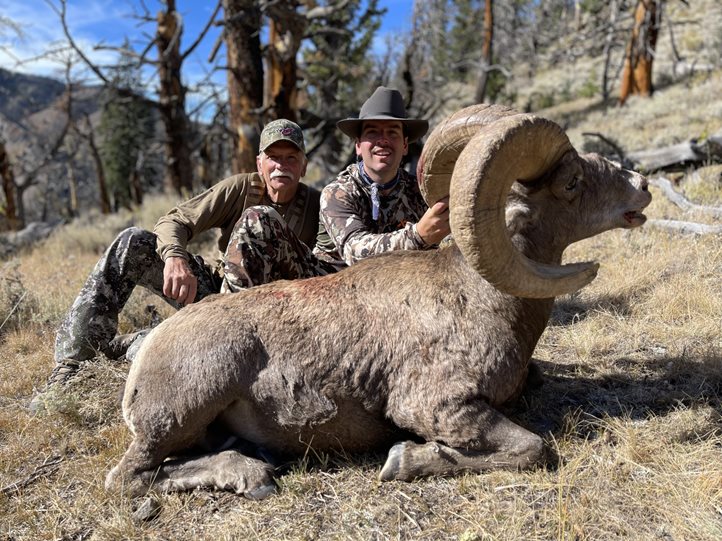
Ferron acknowledges that raffle tags may work for mule deer, moose, or mountain goat tags, which traditionally have offered for tens of 1000’s of {dollars}, but it surely is probably not an efficient income producer for high-dollar sheep tags that may promote for 10 occasions as a lot.
“I need to see as a lot cash raised as potential for conservation efforts, particularly for an animal like bighorn, which for those who blow too onerous can fall over useless,” he says. “To be able to increase the sum of money their administration requires, this form of auction-tag alternative is absolutely necessary, from a fundraising perspective.”
Funds raised from personal contributions, whether or not by public sale or raffle, are multiplied two to a few occasions by federal and different non-state income, for use on designated habitat tasks. So states trying to maximize the quantity of funds obtainable for GPS collars, or translocation tasks, or to do landscape-scale habitat work, are higher off with the association that raises probably the most income. That’s the public sale mannequin.
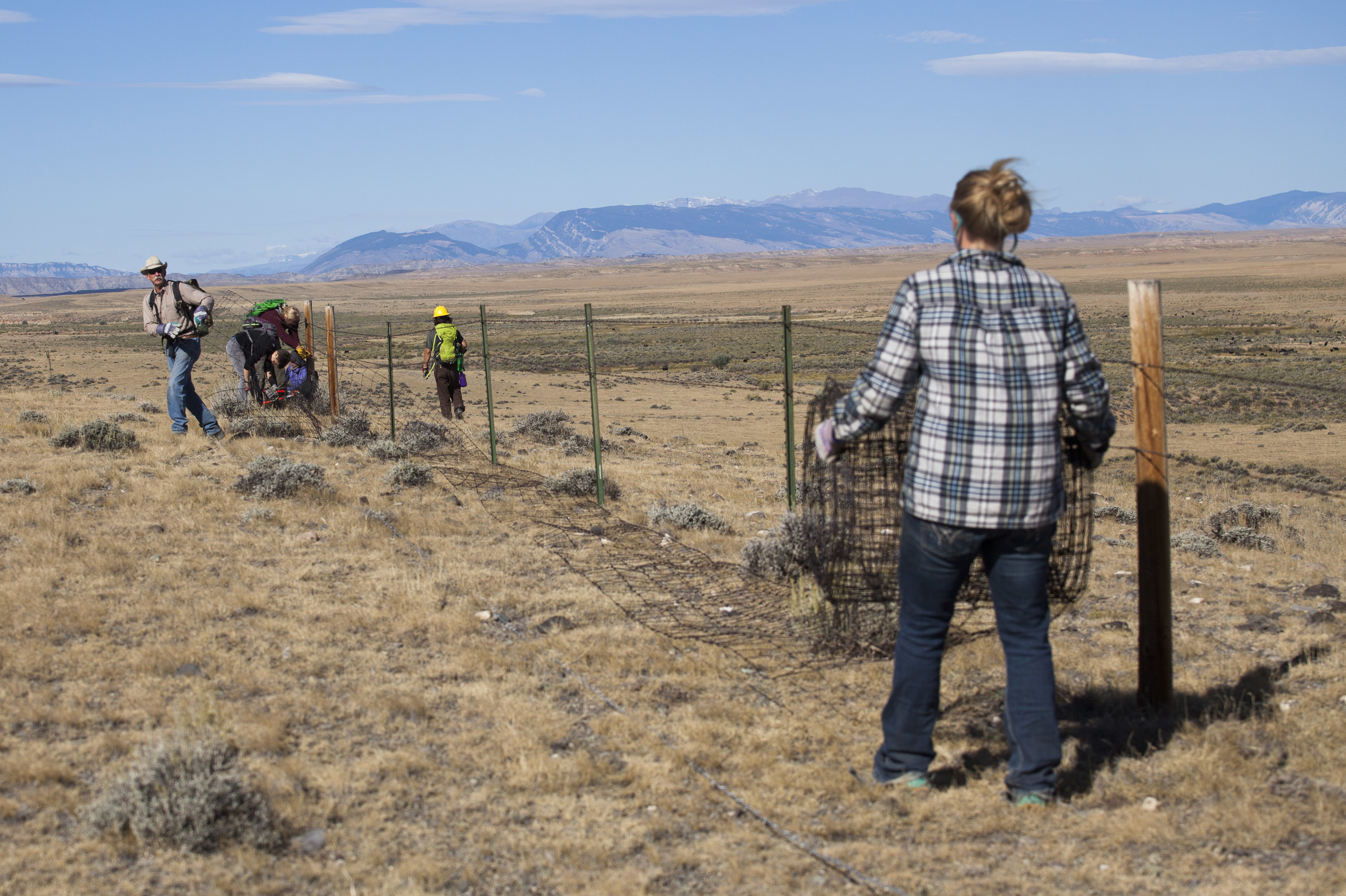
Arizona’s Massive Determination
Will Arizona on Friday pull its assist for the public sale tags which were so profitable for its bighorn-sheep administration program? Will it put situations on the public sale? Will the fee double its assist for raffles? Or will it go for a 3rd approach of special-species funding?
The Arizona Desert Bighorn Sheep Society has some concepts. The group was one of many first to suggest public sale tags as a funding supply and strongly advocates for retaining the present association of public sale tags plus raffles.
“Over the past twenty years the Particular Massive Sport Tag (SBGT) program has raised greater than $9.6 million for bighorn sheep conservation and administration in Arizona,” the group wrote Arizona’s fee. “Of that whole $6.8 million was raised by means of public sale gross sales and $2.8 million by means of raffle gross sales leading to a fundraising effectiveness ratio of greater than 2:1 in favor of auctions.”
Many teams watching the choice are flummoxed by the Arizona wildlife fee’s resolution to take up the query of public sale vs. raffle preparations.
“Sure commissioners have said they imagine all public sale tags must be eradicated,” the pro-hunting group Howl for Wildlife wrote this week. “In the identical breath, they’ve stated they don’t actually know what a special plan appears like at the moment. Whereas it’s true {that a} new various to public sale tags could be on the market, the fee has but to indicate the general public they’ve an motion plan in place that gives a sustainable, manageable, and cost-efficient various higher than what’s presently in place. That’s the risk. Experimenting with Arizona wildlife assets and being keen to just accept much less funding for wildlife…. That is one other risk.”
However Farron articulates one of many softer benefits of the raffle mannequin, as in comparison with the public sale mannequin.
“From an onlookers’ standpoint, I’m far more excited for that one who hugs their spouse and jumps up and down in disbelief when their $20 ticket is plucked out of a raffle hat than I’m for the Sultan of Malaysia who telephones in a profitable bid for a trophy animal.”
